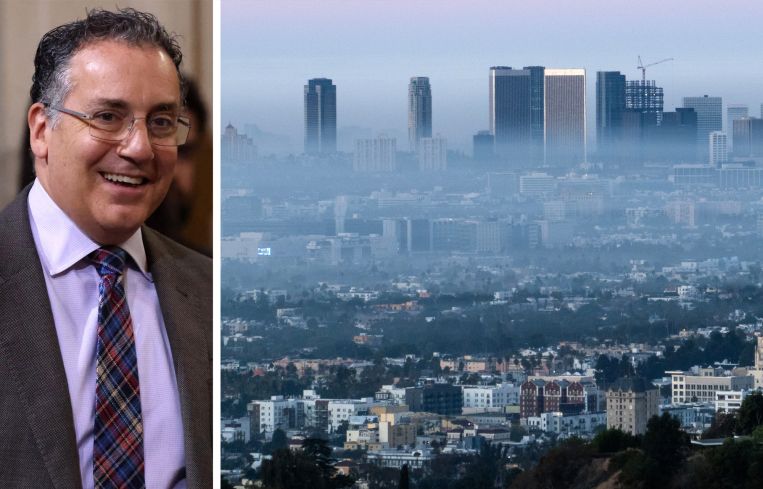L.A. City Council Approves Measure ULA ‘Mansion Tax’ Guidelines
The tax has collected about $480M since taking effect April 2023, still a far cry from initial projections
By Nick Trombola December 13, 2024 4:22 pm
reprints
The City of Los Angeles will finally have more robust guidance on how to spend the revenue gained from the contentious Measure ULA tax following a unanimous vote by the City Council earlier this week.
The Council, in a 12-0 vote, approved the final guidelines for housing development and homelessness prevention programs funded by Measure ULA, as well as an expansion of programs aimed at helping renters, such as rental assistance, eviction defense and support for seniors and people living with disabilities. The measure, colloquially dubbed the “Mansion Tax” despite its effects on the commercial real estate market, has collected about $480 million since its implementation in spring 2023.
City Councilmember Curren Price recused himself from the vote due to his status as a landlord, while Councilmembers Traci Park and Monica Rodriguez were absent. The city lawmakers also approved an amendment by Councilmember Bob Blumenfield calling for a report on how the city could reduce the tax burden on nonprofits building affordable senior housing.
The City Council additionally approved an expenditure plan of Measure ULA funds, totaling $168 million for the 2024-2025 fiscal year. Roughly $133 million will be used to build and renovate affordable housing, $21 million will go toward the renter support programs, and another $13 million will pay for administrative costs.
A spokesperson for Blumenfield did not immediately respond to a request for comment.
The amount of money collected from the tax has gradually improved lately as investment sales activity ticks up, with about $91.2 million in the third quarter of this year compared to about $66.5 million in the third quarter of 2023, though Measure ULA tax revenue is still far below the city’s $604.6 million projection in its 2023-2024 adopted budget. The program’s projected revenue for the 2024-2025 fiscal year is a much more conservative $271.1 million, according to the City Controller’s Office.
Meanwhile, the measure was saved by the California Supreme Court over the summer from effectively appearing as a ballot referendum in November. A collective of business entities had aimed to change the voter majority percentage needed for a special tax vote to pass. Had that change occurred, it would have retroactively affected Measure ULA and sent it back to voters for a required two-thirds majority.
Still, the tax isn’t out of the woods just yet, as the U.S. Court of Appeals for the Ninth Circuit is reviewing a separate lawsuit challenging the tax from an opposition group dubbed Newcastle Courtyards.
Nick Trombola can be reached at ntrombola@commercialobserver.com.



